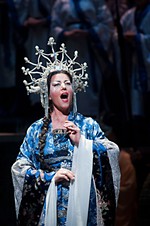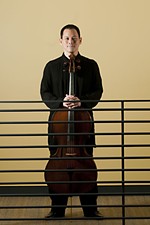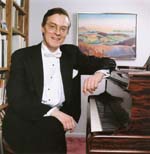Miró Quartet
Local Arts Reviews
Reviewed by Jerry Young, Fri., Oct. 31, 2003
Miró Quartet
Bates Recital Hall, Oct.16Standard advice for public speakers is to start with a joke. It's advice the Miró Quartet took in their debut performance as the UT School of Music's faculty string quartet.
Haydn's Quartet Op. 33, No. 2, "The Joke," displayed the quartet's effortlessly immaculate, finely detailed sound and sense of humor. The joke: Haydn sets up a four-line pattern. The fourth line sounds final, but Haydn brings back the first line, which reiterates the tonic but feels incomplete rhythmically. With an audience eager to show its enthusiasm, the Miró was able to sucker the crowd into applauding at the end of the fourth line -- oops! -- which prompted a wave of laughter as Haydn plays on that feeling of incompleteness to take us round through that four-line phrase again. But he ends with that first line, and rather than keeping us hanging (which I think Haydn wanted), the quartet choreographed a more merciful ending, jumping up quickly to let us in on the joke rather than making us the butt of it.
This performance lacked only repose, a little release from the tension.
Prokofiev's Second Quartet, Op. 92, was perfectly suited for the quartet's nervous energy and brilliant cheekiness. This musical patchwork of folkish melodies and Prokofiev's famous motoric ostinati persists past the point where we would expect the composer to hit the off switch. Prokofiev is tooling with us, and the Miró Quartet were willing, artful, and well-armed accomplices, throwing everything at this muscular, demanding music and making us want to get to know it better.
The performance of Beethoven's String Quartet in B-Flat Op. 130 (with the original Grosse Fuge ending) showed the quartet's interpretive depths. They made sure we felt the full brunt of its mercurial fits of brutal dissonance, cosmic brooding, and, most especially, those elliptical moments, such as in the end of the fourth movement where violinist Daniel Ching found himself poignantly alone, playing his part with the rest of the quartet conspicuously absent.
Their plan for tackling Op. 130 was clear and detailed, and they executed it impressively, if sometimes at the cost of spontaneity, missing chances to engage one another in Beethoven's elaborate interplay -- the notes were always there, but the interaction wasn't. I hope in 10 years they'll pull out this same program so we can hear how far they've come. And I hope that then they'll be able to set aside the plan and play this quartet by the seat of their pants.
Usually late Beethoven gets the last word, but their encore, "The Eyes of Texas," was hard to pass up. It drew approving whoops, ending the concert as it began, with a joke.










